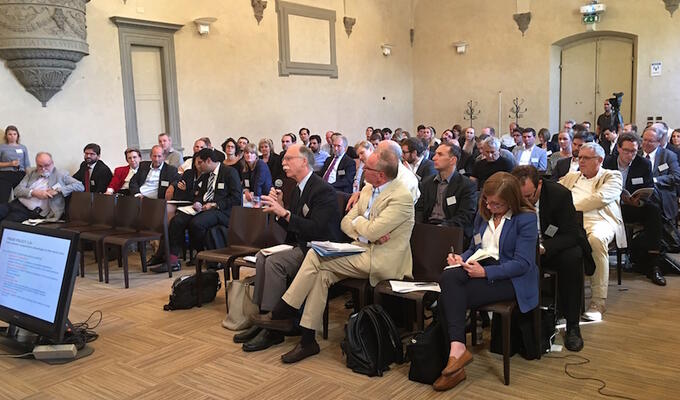

Standards play key role in making value chains more sustainable
Consumers’ demand for goods that reflect their ethical and environmental priorities has given rise to a growing array of social and environmental voluntary standards that have in turn reshaped international production and trade patterns, according to a study issued today by the International Trade Centre (ITC) and the European University Institute (EUI).
Standards play a valuable role in supporting greener and more socially sustainable value chains, says Social and Environmental Standards – Contributing to More Sustainable Value Chains. The number and geographic coverage of green labels have risen dramatically in the past decade alone. . Moreover, voluntary standards are not limited to environmental considerations: those related to working conditions and the protection of basic human rights play an increasingly important role in international value chains.
In the past, the quest for increased sustainability through voluntary standards was primarily an industrialized country phenomenon. This trend is now changing. While three-quarters of the voluntary sustainability standards covered by the ITC Standards Map still originate in countries belonging to the Organisation for Economic Cooperation and Development (OECD), sustainability standards increasingly originate in emerging economies, including Brazil, India, Kenya and South Africa. Before 1990, only 8% of such initiatives were based in non-OECD countries. In contrast, fully 36% of sustainability initiatives launched between 2010 and 2015 were headquartered in developing countries.
While many of these sustainability standards operate internationally, using them to tap into value chains can often prove difficult, especially for small and medium-sized enterprises (SMEs) in smaller developing countries.
The study explains that the barriers facing such companies are twofold.
First, a given standard may simply not operate in many developing countries. The total size of an economy – though interestingly not its per capita income level – is strongly associated with the number of standards in operation. The largest number of standards, 106, is found in the European Union, followed by 84 in the United States and 82 in China. Meanwhile, in countries in the Middle East and North Africa, as well as sub-Saharan Africa, the number of standards in operation is well below the global average of 33. The correlation is in part a function of the fact that many standards are sector- or product–specific, and thus have greater application in large economies producing a diverse range of goods and services. In addition, third-party certifiers, which assess businesses’ conformity with voluntary standards, generally operate as private commercial entities, and tend to favour larger economies with more potential clients. Beyond economic size, the ease of trading with a country also affects the number of standards in operation. Countries that perform well on logistics and border efficiency attract the attention of lead firms in international value chains, and these firms play a major role in the spread and governance of sustainability standards.
The second set of barriers deals with the costs and other obstacles that face businesses seeking to meet voluntary sustainability standards. A lack of transparency about requirements, assessment methodologies, and dispute resolution processes might make it hard for a company even to understand what it needs to do to comply. The expense of compliance and certification may be prohibitive, especially for smaller-scale businesses and farmers.
Social and Environmental Standards sets out a series of recommendations for standard-setters, governments and businesses aimed at expanding the reach of voluntary sustainability standards to more countries and SMEs.
For example, while there is little that policymakers in small developing countries can do in the short run to expand the size of the economy, they can work to improve logistics and institutional performance. The study describes how standard setters and other value chain actors can reduce the costs of certification to producers, and examines the varying degrees of support that exist to help producers comply with certain standards. When standards are set by private sector actors, for instance, the probability that suppliers – notably in developing countries – do not have to bear all the certification costs by themselves increases by 41%.
The paper also sets out a research agenda on voluntary sustainability standards, raising questions such as whether aid for trade, public subsidies, or end consumers should finance more of the costs associated with compliance.
“Trade in the twenty-first century is consumer centric; 55 percent of consumers are ready to pay premiums for sustainably produced goods, and the share is rising,” said ITC Executive Director Arancha González. “But while voluntary sustainability standards play an important role in promoting ‘good trade’, their development impact can’t be maximized unless SMEs in developing countries are able to comply. This study points the way to how more SMEs, in more countries, can be supported to enter into sustainable value chains.”
Download and read Social and Environmental Standards – Contributing to More Sustainable Value Chains.



